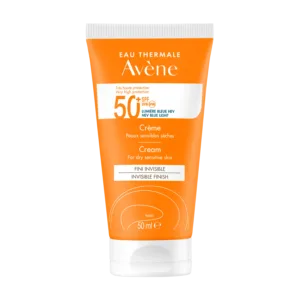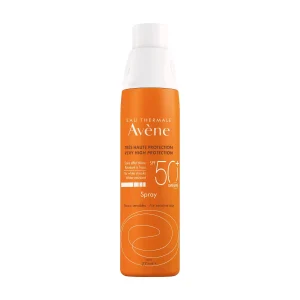
Pregnancy is a time of joy and anticipation, but it also changes a woman’s body, including increased sensitivity to the sun. As a mother-to-be, it’s essential to protect your skin from harmful UV rays. However, it can be difficult to navigate the world of sunscreens, especially if you’re concerned about the safety of the products you’re using. That’s why we reached out to dermatologist Dr. Aliaksandra Aniskevish, to help you choose the best pregnancy-safe sunscreen, so you can enjoy the sun while protecting yourself and your baby.
How important is it to protect your skin during pregnancy?
Protecting your skin during pregnancy is of vital importance for a number of reasons:
1- Hormonal changes: Pregnancy brings about significant hormonal changes in the body, which can affect the condition of your skin. Fluctuating hormone levels can lead to various skin problems such as acne, increased sebum production and hyperpigmentation. By protecting your skin, you can help minimize the onset and severity of these problems.
2- Increased sensitivity to the sun: During pregnancy, the body produces more blood, which can make the skin more sensitive to the sun’s harmful UV rays. This increased sensitivity can lead to sunburn, skin lesions and exacerbate existing skin conditions. Protecting your skin with sunscreen and other sun protection measures can help reduce the risk of these undesirable effects.
3- Melasma and hyperpigmentation: Melasma, also known as the “pregnancy mask”, is a common skin condition characterized by dark spots on the face, particularly on the cheeks, forehead and upper lip. Dr. Aliaksandra Aniskevish points out that hormonal imbalance due to pregnancy and excessive sun exposure stimulate melanogenesis and lead to melasma, mainly during the third trimester of pregnancy.
4- Preventing skin cancer: Sun exposure is a major risk factor for skin cancer, including melanoma, which can be fatal. Protecting your skin during pregnancy reduces the risk of developing skin cancer later in life, both for you and your unborn child. Dr. Aliaksandra Aniskevish adds that moles, freckles and recent scars may darken during pregnancy. It’s essential to pay attention to moles that grow rapidly and change color dramatically to rule out the possibility of melanoma.
5- General skin health: Pregnancy can sometimes cause dry or itchy skin due to hormonal changes. Using moisturizers and gentle skin care products can help maintain skin hydration and minimize discomfort. In addition, protecting the skin from external factors such as pollution and harsh weather conditions can promote overall skin health.
6- Self-confidence and well-being: Pregnancy is a special time when many women experience changes to their body and skin. By taking care of your skin, you can improve your self-confidence and well-being. Healthy skin can contribute to a positive body image and overall happiness during this period of transformation.
Which sunscreen products are recommended for pregnant women, and which ingredients should be avoided?
When choosing sunscreens and sun protection products during pregnancy, it’s important to look for options labeled as pregnancy-safe or suitable for expectant mothers. These products are formulated to minimize potential risks and offer effective sun protection without harmful ingredients.
Here are some key factors to consider when choosing suncare products during pregnancy:
1- Broad-spectrum protection: Look for sunscreens offering broad-spectrum protection, which means they protect against both UVA and UVB rays. This guarantees complete protection against the sun’s harmful effects.
2- Sun Protection Factor (SPF): Opt for a sunscreen with a minimum SPF of 30. Higher SPFs offer better protection, but it’s important to note that no sunscreen can offer 100% protection. Reapplication is necessary, especially after perspiring, swimming or spending long periods in the sun.
3- Physical sunscreens: Consider using physical sunscreens containing mineral ingredients such as titanium dioxide and zinc oxide. These ingredients create a physical barrier on the skin, reflecting and dispersing UV rays. Physical sunscreens are generally considered safe for pregnant women, as they are less likely to be absorbed into the bloodstream.
4- Avoid certain chemical ingredients: During pregnancy, it’s advisable to avoid sunscreen products containing potentially harmful chemicals. Dr. Aliaksandra Aniskevish notes that, apart from hydroquinone and topical retinoids, skin care products should not increase the risk of adverse effects on fetal development.
5- Fragrance-free and hypoallergenic options: Remember to choose fragrance-free and hypoallergenic suncare products to minimize the risk of skin irritation or allergic reactions.
It’s important to note that everyone’s skin is unique, and what works for one person may not work for another. If you have any specific concerns or questions about sunscreen products during pregnancy, it’s always advisable to consult your healthcare provider or dermatologist. They will be able to give you personalized advice based on your individual needs and any underlying skin conditions.
Our recommendations:
For combination skin:
Eau Thermale Avène Very High Protection Fluid SPF 50+
For dry skin:
Eau Thermale Avène Very High Protection Cream SPF50+
For the body:
Eau Thermale Avène High Sun Protection Spray SPF 50+
What are the tips for safe sun protection during pregnancy?
Protecting your skin from the sun during pregnancy is essential to avoid sunburn, skin lesions and other related problems. Here are some important steps you can take to protect yourself from the sun:
1- Use a pregnancy-appropriate sunscreen.
2- Apply sunscreen correctly: It’s important to apply sunscreen correctly to ensure effective protection. Follow these tips:
- Apply sunscreen at least 15 to 30 minutes before exposure to the sun, so that it can be absorbed by the skin.
- Use enough sunscreen to cover all exposed areas. Try applying a teaspoon of sunscreen on the face and a shot-glass-sized amount on the body.
- Pay attention to the areas most often overlooked, such as your ears, the back of your neck and the tops of your feet.
- Reapply sunscreen every two hours, or more frequently if you’re sweating, swimming or towel-drying. Reapplication is essential to maintain adequate protection.
3- Seek shade: Whenever possible, seek shade during peak sunlight hours, generally between 10 a.m. and 4 p.m., when the sun’s rays are strongest. Staying in the shade reduces direct exposure to the sun and the risk of sunburn and skin lesions.
4- Wear protective clothing: Covering your skin with protective clothing is an effective way of protecting it from the sun’s rays. Consider the following:
- Wear light, loose-fitting, breathable clothing that covers your arms and legs. Choose tightly woven clothing for better sun protection.
- Wear a wide-brimmed hat that covers your face, neck and ears.
- Protect your eyes by wearing sunglasses with 100% UVA and UVB protection.
5- Use other sun protection measures: In addition to sunscreen and protective clothing, you can take additional measures to boost your sun protection:
- Use a lip balm with SPF to protect your lips from sun damage.
- Consider using an umbrella or parasol when spending time outdoors to create extra shade.
- Dr Aliaksandra Aniskevish recommends drinking plenty of water to stay hydrated.
Don’t forget to consult your doctor or dermatologist for personalized advice on sun protection during pregnancy, especially if you have specific skin problems or use other skin care products or medications.
Worth noting…
Dr Aliaksandra Aniskevish highlights the benefits of proper sun exposure during the first three months of pregnancy, as UV exposure is beneficial for fetal growth. A “healthy” UV exposure during pregnancy reduces the risk of premature delivery!
She adds that sunscreens have been used during pregnancy to treat or prevent melasma, and no adverse effects have been reported!
Conclusion
When it comes to protecting your skin during pregnancy, choosing a pregnancy-safe sunscreen is of the utmost importance. By opting for physical sunscreens and avoiding harmful chemicals, you can enjoy the warmth of the sun while ensuring your well-being and that of your baby. Don’t forget to consult your doctor or dermatologist to find the sunscreen best suited to your needs.
So enjoy the sun, cherish the outdoors and let your radiant beauty shine. Choose wisely, protect fiercely and embark on a sun-kissed pregnancy that will light up the world around you. Protect your radiance, mum-to-be, and celebrate the beauty of this extraordinary chapter with the assurance that you’re caring for your skin in the gentlest, most loving way possible.
Last Updated on March 26, 2024











